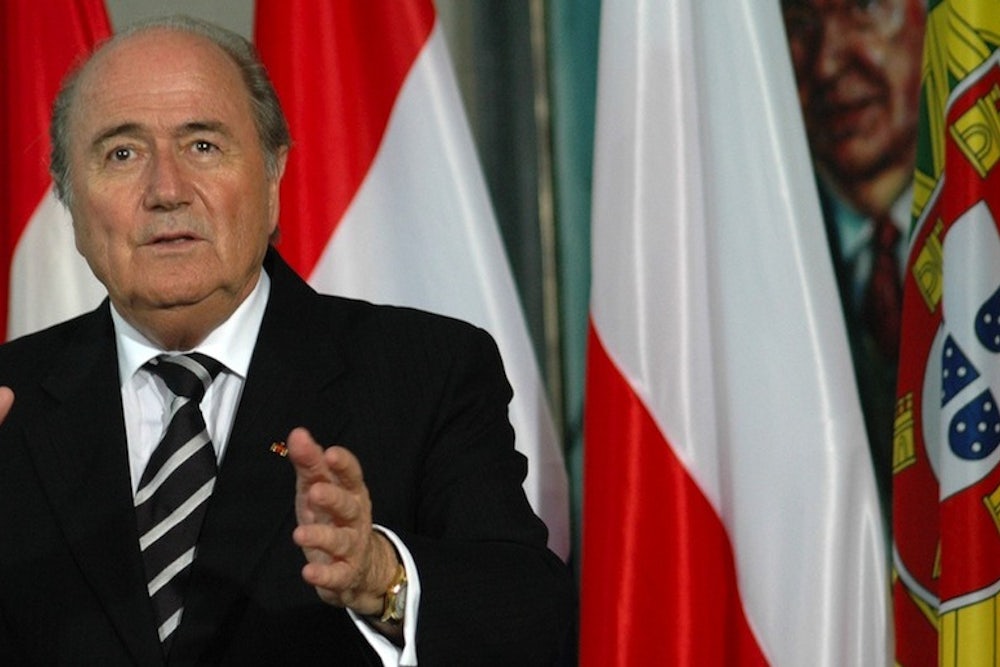With the World Cup kicking off this Thursday, the month of June should be FIFA’s moment in the sun. Instead, the skies continue to darken over soccer's international governing body.
It all started on June 1, when The Sunday Times exposed that Mohamed bin Hammam, a former member of FIFA’s executive committee, had secretly bribed soccer officials worldwide nearly $5 million in an attempt to win votes for Qatar’s successful bid to host the 2022 World Cup. This wasn’t the first corruption charge leveled at bin Hammam: he was banned from FIFA in 2012 on charges of bribery, though the decision was later overturned.
Then, on Friday, Dave Zirin, The Nation sports columnist who recently published a book on the neoliberal policy behind the Brazil World Cup, made the case in the New York Times for kicking FIFA out of the sport altogether. “It is past time to abolish FIFA,” Zirin wrote. “It is like a gangrenous limb that requires amputation before the infection spreads and the beautiful game becomes decayed beyond all possible recognition.”
On Sunday, the Sunday Times's muckraking continued, revealing that bin Hammam paid Asian countries nearly $1.7 million in exchange for their votes for Qatar. The same report alleges that bin Hammam met with members of the Thai government to discuss multimillion-dollar gas contracts for the country’s support.
Even comedian John Oliver got in on the act. On last night’s episode of “Last Week Tonight” on HBO, he took FIFA to task for its latest wave of corruption and bribery scandals. “The Qatar World Cup is shaping up to be the most deadly Middle East construction project since this one,” said Oliver, gesturing to a graphic of the Egyptian pyramids. Like Zirin, Oliver condemned the construction of a $300 million stadium in the middle of the Amazon rainforest—one that probably won’t be used after the World Cup.
The negative publicity has been so overwhelming that even some of the World Cup’s biggest and longest-serving sponsors, including Adidas and Sony, have expressed concern. “The negative tenor of the public debate around FIFA at the moment is neither good for football nor for FIFA and its partners,” a spokesman for Adidas told The Guardian. Perhaps corporate pressure will accomplish what mockery and muckraking have failed to do: convince FIFA to reform.
